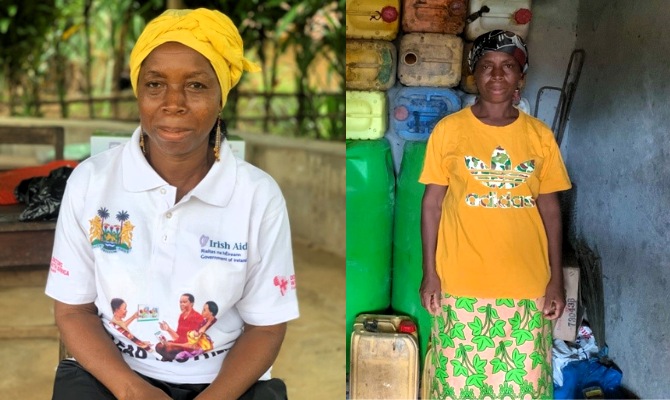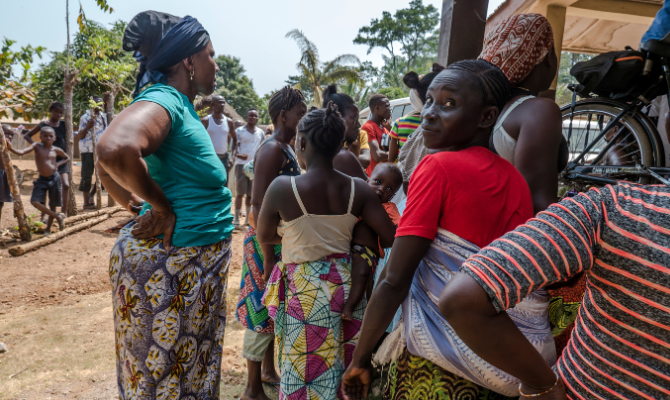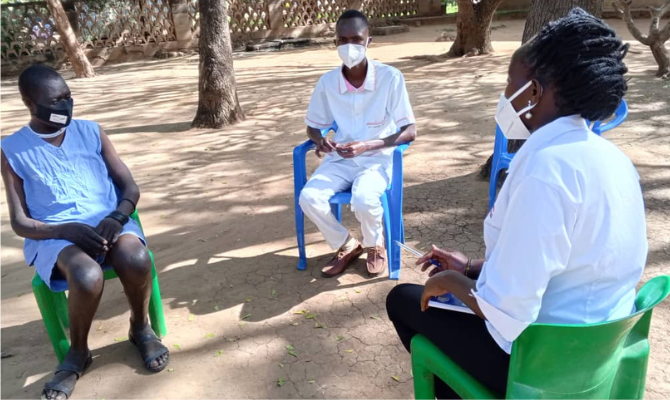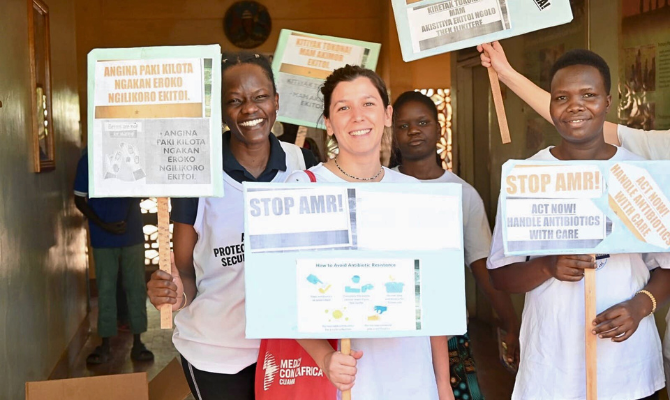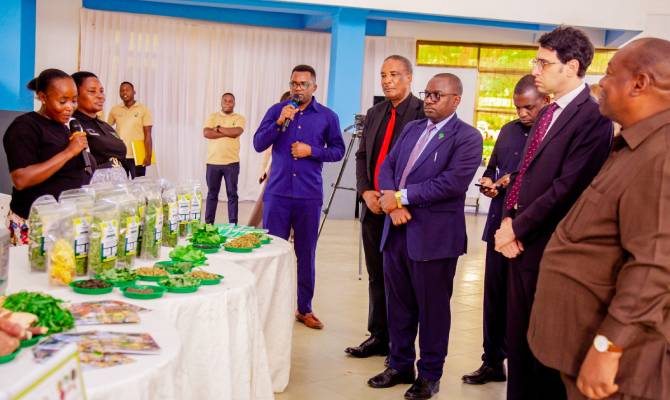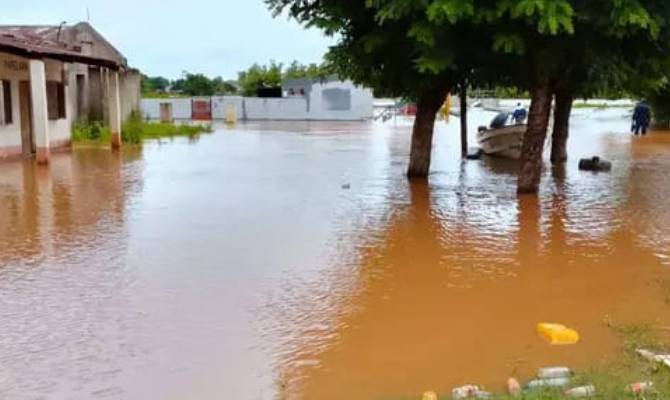Mahawa Kanneh, 43 years old, lives in a town named Dandabu Bakoi, in Barri chiefdom in Pujehun district in Sierra Leone. She is a single mother with 7 children and her main source of livelihood comes from subsistence farming. Despite the tough challenges, she has no option but hold on to the mantle of a breadwinner of the household.
Mahawa has become one of the beneficiaries of the project funded by Irish Aid, the Irish cooperation, which Doctors with Africa CUAMM implements with the aim of improving the nutritional status of children under five, pregnant and lactating women, and women of reproductive age. CUAMM is committed to training community health workers (CHWs): once trained, they become the protagonists of health and nutrition awareness and education activities within their respective communities.
In addition, CUAMM facilitates the creation of small groups, known as “Mothers’ Support Groups” (MSG), to sensitise women on good maternal and child nutrition practices and promote their empowerment so that they can then pass on what they have learnt to other group members through a “peer to peer” system.
This is how Mahawa also became a leader of her community’s mother support group and a member of the Village Savings and Loans Association (VSLA). Mahawa and the members of her group first received specific training on what loans are and how they work, and on nutritional gardens; then, they received the seeds to create a nutritional garden and the tools necessary to start a VSLA.
“My days of struggle had been associated with loans, having worrying conditions and exorbitant interests to support my children’s education and wellbeing. I’m very delighted to be part of the VSLA initiative and I must appreciate the fact that I have been able to have access to financial loans without stress and a very minimum interest rate. This have not only helped me reduce my financial burdens but have also shielded me from legal entanglements. I’m happy that I have started a palm oil business that generates income for me”
As part of the support group, Mahawa enjoys additional benefits: after each harvest, she can consume the vegetables from the nutritional garden, improving her dietary intake and reducing the expense of buying food for family meals. Mahawa is determined to improve her business and her fortitude has made her a role model for her community. Despite her responsibilities as a mother, Mahawa has always been able to balance household chores and her role in the support group by tending the garden and continuing to participate in VSLA activities.
Through these initiatives, women in the communities are gradually becoming more independent, including economically, so that they can better provide for their families and build a better future for themselves and their children.
